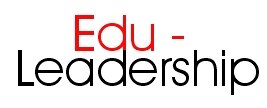

|
Pilot Performance The Journey is the Reward Pilot Performance - "The Journey is the Reward" was originally featured in The CEO Refresher and is reprinted with permission.
The rapid rate and the complexity of the changes we face today will if anything, increase in the future. We are facing a new reality that requires a brand new set of strategies, structures, processes, and behaviors to be effective. The ultimate goal for individuals and organizations is to develop the capabilities to master new challenges by responding in new and unique ways to new and unique circumstances. The techniques and methodologies applied in aviation provide a useful roadmap for developing these capabilities. Effective performance within this new context requires the unlearning of many traditional management behaviours, and overlearning of new skills. The metaphor of Pilot Performance provides an insight into the capability to respond decisively and navigate effectively through a rapidly changing and uncontrollable environment. The key lessons: 1. Control and predictability can no longer suffice! The objective is not to bring order to chaos but to develop the mind set and skills to respond effectively to the dynamics of continuous and rapid change. Being ‘in control’ is at best an illusion. Change 'in control' to being ‘in command’ - the awareness of the performance capability of your ‘aircraft’, a self awareness of personal capability and skill, and a continuous process of assessment and accurate interpretation of reality. The objective is not to bring order to chaos but to develop the mind set and skills to respond effectively to the dynamics of continuous and rapid change as currently exists in education today. For educators, from the classroom to the boardroom, the leadership model of being 'in control' is being replaced with 'in command.' 'In control' imparts a sense of exclusiveness and rigidity, and is dictatorial in nature. In contrast, being 'in command' provides a sense of inclusiveness and flexibility, and is participative in nature. The shift occurs from a focus of self-importance to a greater focus of concern for personal and organizational performance. The leader 'in command' is mindful of the internal compass that guides the performance capability of one's ‘aircraft,’ a self-awareness of personal capability and skill, and a continuous process of assessment and accurate interpretation of reality. 2. Performance ultimately depends on the human factor! In spite of the sophistication of operations, machinery or technology, competence and performance ultimately depend on the human factor. ‘The right stuff’ is about personal skill, proficiency, mastery, and continuous learning and improvement. The objective - to respond decisively to changes in the environment and to adjust your course as necessary to navigate ‘safely’ to your destination. Leadership in education isn't about operations, machinery or technology, it's about the human factor. It's about developing 'the right stuff' in self, and in others. And what is ‘the right stuff?' Greater competence and personal skill, proficiency, mastery, and honoring continuous learning and improvement. The objective - to help others respond decisively to changes in the environment and to adjust the course as necessary to navigate ‘safely’ to their destination. In education, the ultimate destiny of the navigation is a system of high performance. 3. The journey is the reward! From the first session in ground school on the physics of flight and the first walk-around and solo, flying challenges the soul and opens a door to a new dimension of freedom and the spirit of adventure. Every flight provides a new challenge and source of learning, as well as the exhilaration of maneuvering in a new dimension. Each new challenge is unique and the ‘pilot-in-command’ accepts the full responsibility for flawless execution and performance. As flying challenges the soul, so too should education. It can open doors to a new dimension of freedom and spirit of adventure for the educators and children involved. And, as every flight provides a new challenge and source of learning, each day in education has the opportunity to welcome the exhilaration of maneuvering in a new dimension towards higher performance for all. The training methodologies that have been applied in aviation have ensured superior levels of performance and continuous improvement to be the rule. New skills in developing internal proficiency and external situational awareness can greatly enhance the capability of individuals, work teams, and organizations to deal effectively with change. These new skills can form the foundation for an ongoing and creative learning process. As in aviation, superior levels of performance and continuous improvement in education should become the rule and standard. Being average doesn't get it. Dealing effectively with change and becoming an organization of high performance does. 'In command' in education means being accountable for developing new skills and new thinking which serve as the foundation for an ongoing and creative learning process that brings a journey of greater effectiveness for educators, and of greater achievement for students. Our journey begins with an appreciation of pilot performance skills and methodologies, and their application to business leadership and management. Within a context of continuous learning and development the journey will not end, and as with the experience and adventure of flight, the journey will be a rewarding one. Our journey begins with an appreciation of pilot performance skills and methodologies, and their application to leadership in education. Within a context of continuous learning and development the journey will not end, and as with the experience and adventure of flight, the journey of developing a system of high performance in education will be a rewarding one. Henry K. and Bettina
Copyright 2002 Edu-Leadership.com. All rights reserved. |